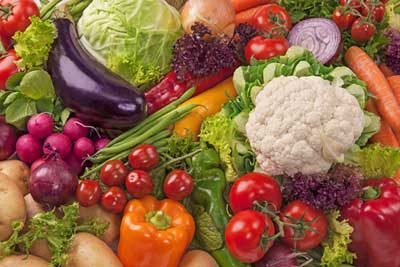
I grew up in Cow Town. Or make that Fort Worth, Texas. It was the ’50s and supper was canned spinach with either meat loaf or with what my brother and I called “loose meat”—ground beef and canned mushroom soup. Iceberg lettuce and Jell-O rounded it out.
Food was not a big deal.
But when I ended up in Berkeley in the ’60s, food was a big deal. The food scene buzzed with experimentation. We rejected white-bread culture, and eating brown rice became a political statement. With stirfried veggies, what could be better? At the same time, food became my teacher: I spent long hours in the university agriculture library trying to figure out why there was so much hunger in the world. Were we really running out of food? Well, no, there was more than enough for all. I was more startled to discover that we humans are actually creating scarcity.
The global marketplace is driven by underlying economic rules that concentrate wealth and generate extreme inequality. Millions of people are too poor to pay market price for food. So grain that could feed the hungry instead becomes a raw material for a luxury product: grain-fed meat.
How illogical, how destructive! I don’t have to be part of that, I realized. It dawned on me that eating low on the food chain—a plant-centered diet—was best for others, my body, and the Earth. The ultimate win-win.
I never felt I was “giving up” anything. It soon dawned on this daughter of Cow Town that, while animal foods come in a few shapes and flavors, the world of plant food is almost endless: Think of green, red, yellow veggies. Root foods—from yams to purple potatoes. Legumes, including peas, beans, lentils, each with jillions of varieties. Fruits, from the bright, giant watermelon to the dark, delicate fig.
I learned that nuts and seeds are not just for the birds. I started trying out different taste combinations. What … you mean mushrooms and barley make a great casserole? I scandalized my Lebanese girlfriend by adding garbanzos to my tabbouleh. I had a great old time making up stuff.
I felt not deprived but liberated. In Berkeley, we were sprouting a movement that was not about sacrifice but about rediscovering the deliciousness of the Earth. Since I first published Diet for a Small Planet in 1971, I’ve watched that movement blossom around the world—it has grown far beyond what I could ever have imagined. In the United States, there are more than four times as many farmers markets as there were nearly two decades ago. There are thriving organizations all over the country that save seeds, grow a vividly colorful palette of thousands of kinds of food plants, and develop wild and organic farms where crops coexist alongside habitat for butterflies and birds. Biodiversity, as it turns out, can make a farm more productive. And well-tended organic soil can store carbon—so good food is also a solution to climate change.
In the past four decades, food has taught me what is possible. I have realized that delicious eating is not an indulgence. It is the body’s way of reminding us how we can solve the ecological crises we face. All of us long for good food, and I believe that it’s possible for a groundswell of food lovers to heal the Earth—as millions of us align our taste buds with what the planet and people need.
Join us in defending the truth before it’s too late
The future of independent journalism is uncertain, and the consequences of losing it are too grave to ignore. To ensure Truthout remains safe, strong, and free, we need to raise $47,000 in the next 8 days. Every dollar raised goes directly toward the costs of producing news you can trust.
Please give what you can — because by supporting us with a tax-deductible donation, you’re not just preserving a source of news, you’re helping to safeguard what’s left of our democracy.